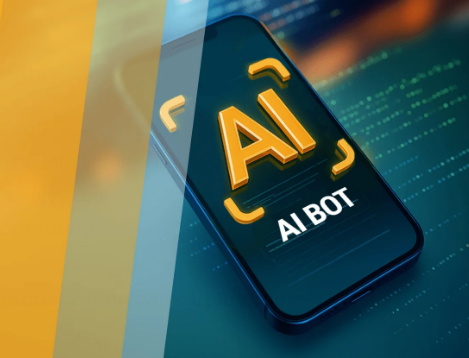How Generative AI Is Making Everyday Apps Smarter Even Offline

Have you ever opened an app that seemed to understand your needs instantly, predicting what you might do next or offering suggestions without you even asking? That quiet intelligence is powered by Generative AI, and it is reshaping how mobile applications think, learn, and interact with users.
In Dallas, a growing hub for technology and innovation, this transformation is becoming increasingly visible. Businesses are moving beyond traditional app design and building smarter, more responsive digital products that can operate intelligently, even without a constant internet connection. The role of a mobile application development company in this shift is critical, helping brands bridge the gap between advanced AI technology and everyday user experience.
The Shift Toward Smarter Offline Apps
Most mobile apps rely heavily on cloud-based AI processing, which often limits how they function offline. Users face lag, poor accessibility, or reduced functionality when internet coverage drops. With the evolution of on-device AI and generative models, developers are now embedding intelligence directly into mobile devices.
This means your app can analyze, predict, and assist users without sending data to remote servers. From personal health tracking to note-taking and customer service apps, this shift makes digital tools faster, more private, and consistently available.
Dallas-based startups and enterprises are increasingly exploring this approach, recognizing how offline AI capabilities can set their apps apart in a crowded market.
Generative AI: From Passive Tools to Active Thinkers
Generative AI allows applications to create new content, learn from user behavior, and offer real-time suggestions. Rather than waiting for user input, these apps anticipate needs.
For example, fitness apps can design personalized workout plans based on past activity, weather, and time of day. Language learning platforms can generate context-based exercises on demand. Productivity apps can summarize meetings or emails and suggest next actions automatically.
What makes this possible is the ability of modern AI models to run locally on smartphones. Advanced chips, like Google’s Tensor and Apple’s Neural Engine, now allow apps to process data on-device. This evolution lets developers create experiences that are faster and more reliable, while also protecting user privacy.
Why Offline AI Is a Game Changer for Dallas Businesses
Dallas has rapidly become one of the leading tech regions in the United States. The city’s growing ecosystem of startups and enterprises focuses on solving real-world challenges with technology. As the competition in app development intensifies, building AI-driven features that work seamlessly offline is becoming a key differentiator.
Businesses across sectors such as healthcare, logistics, and finance are discovering that integrating AI locally allows them to offer smarter user experiences while complying with strict data privacy laws. When your app can function and learn without sending sensitive information to a cloud, you gain both performance and trust.
This is where the expertise of companies like Software Orca becomes valuable. By focusing on building practical, AI-powered solutions that maintain both intelligence and integrity, Software Orca helps businesses adapt to the changing technological landscape efficiently.
Balancing Innovation and Privacy
AI-powered apps can deliver personalized experiences, but this also introduces questions about data ethics. Users are becoming more cautious about how their information is collected and used. For Dallas-based developers, privacy has become just as important as innovation.
Generative AI models running on-device reduce many of these concerns. They allow apps to analyze behavior and make predictions without sharing user data externally. This approach gives users confidence while helping brands align with data protection standards like GDPR and CCPA.
When privacy is part of design thinking from the start, businesses can build deeper trust and retain more loyal users. The future of AI development will not only be defined by what technology can do but also by how responsibly it is applied.
Real-World Examples of Smarter AI Integration
Across the Dallas startup scene, several industries are already taking advantage of offline AI capabilities.
- Healthcare: Apps now use AI to provide preliminary health insights, even when offline, using pre-trained models stored on the device. This helps professionals access critical data without delay.
- Retail: Local retailers use AI to recommend products based on past purchases and customer interactions stored within the app, even without connectivity.
- Education: Learning apps can adapt lessons based on performance and engagement history, providing tailored experiences regardless of location.
- Transportation and Logistics: Delivery and fleet management apps analyze routes and performance metrics locally to optimize schedules and fuel consumption in real time.
Each of these examples shows that AI can make apps more resilient and independent, improving user experience without compromising performance or safety.
How Developers Can Get Started
Integrating generative AI into mobile apps requires more than just technical knowledge. Developers must understand how to blend human needs with algorithmic efficiency. The process begins by identifying where AI can add true value — not just as a feature but as part of the app’s core functionality.
Next, developers should evaluate frameworks that support on-device AI, such as TensorFlow Lite, Core ML, or ONNX Runtime. These platforms enable lightweight model deployment without overwhelming mobile performance.
Finally, continuous iteration based on user feedback and analytics ensures the AI evolves effectively over time. The most successful apps are those that treat AI as a co-creator rather than a background process.
The Business Edge of Generative AI
Companies investing in generative AI are not just keeping up with innovation; they are creating competitive advantages. Smarter apps retain users longer, increase engagement, and provide more meaningful interactions. For businesses, that translates into higher customer satisfaction and better retention.
Dallas has emerged as one of the key regions where this innovation is thriving. With support from skilled developers and strategic partners, local businesses can integrate generative AI to future-proof their digital products.
Partnering with a trusted mobile application development company like Software Orca ensures that the AI integration is not only innovative but also scalable, compliant, and aligned with real user behavior.
Preparing for the Next Phase of Intelligent Apps
As the capabilities of mobile hardware grow, AI-driven apps will continue to evolve. The next generation of applications will understand context, emotion, and intent in ways that feel intuitive to users. Offline intelligence will become a standard expectation, not an exception.
Forward-thinking developers in Dallas are already leading this change, blending creativity with technical mastery to redefine how people interact with technology.
The role of app development services in Dallas is expanding from building functional apps to creating intelligent ecosystems that think alongside users. Whether you are a startup founder or a large enterprise, understanding how to harness this power will determine your competitive strength in the years ahead.
Final Thoughts
Generative AI is no longer a futuristic idea. It is here, transforming how apps are built, used, and experienced. The ability to make apps smarter, faster, and privacy-conscious without relying on constant connectivity is setting a new benchmark for innovation.
For businesses in Dallas, this is an opportunity to lead — to build applications that truly understand users and adapt to their world. Companies like Software Orca are already at the forefront of this evolution, helping brands turn AI potential into practical success.
The future of app development is intelligent, human-centered, and locally empowered. And it’s already unfolding, right in the heart of Dallas.





